Welcome to Jiangsu DZX Factory.
Email:dlx@dlx-alloy.com Mobile/Whatsapp:+86 199 0611 9641
Professional manufacturer of welding wires and spraying wires,over 22 years.
Welcome to Jiangsu DZX Factory.
Email:dlx@dlx-alloy.com Mobile/Whatsapp:+86 199 0611 9641
Professional manufacturer of welding wires and spraying wires,over 22 years.
Contact:Jason
Whatsapp:+8619906119641
Email:dlx@dlx-alloy.com
Add:NO.32 West Taihu Road, Xinbei District, Changzhou, Jiangsu,China
Copper Welding Wire
Product Details
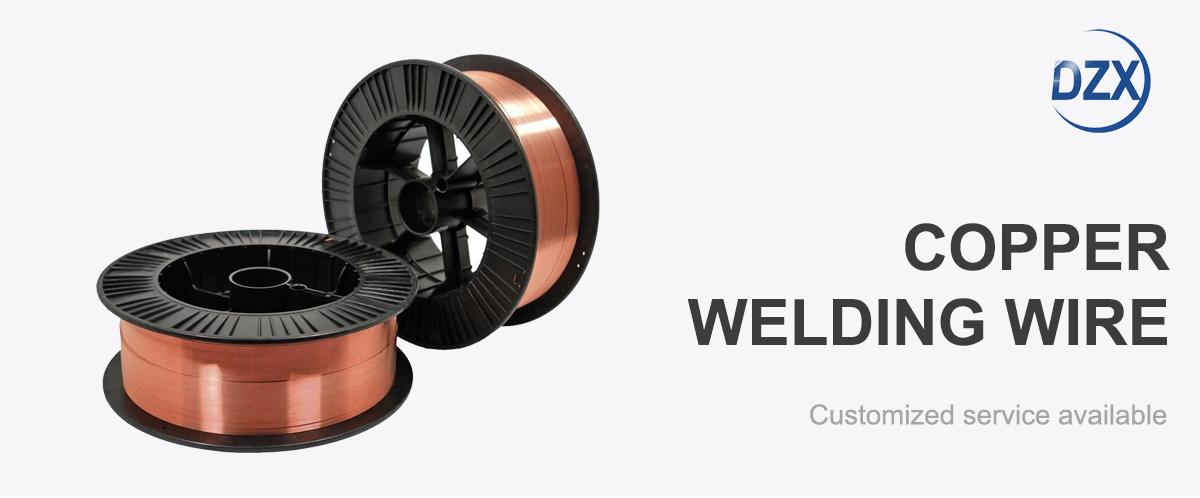
Our ERCuAl-A1 aluminum bronze welding wire is a powerhouse for industrial and chemical equipment welding. With around 6-8% aluminum and a copper base, this wire is designed for strength, durability, and corrosion resistance. It’s perfect for TIG and MIG welding, delivering smooth arcs and clean, strong welds. Whether you’re joining aluminum bronze alloys or surfacing worn parts, ERCuAl-A1 offers excellent wear resistance and toughness, making it a go-to for heavy-duty applications. It’s built to handle harsh conditions, from chemical plants to industrial machinery.
We’ve engineered our ERCuAl-A1 wire to tackle tough welding jobs. Its high aluminum content gives welds superior hardness and resistance to wear, corrosion, and cavitation—ideal for equipment exposed to chemicals or abrasive materials. With tensile strength around 60,000-70,000 psi, it’s strong enough for critical components like bearings, gears, and valve seats. The wire’s versatility lets it weld dissimilar metals, like copper alloys to steel, while maintaining a smooth bead and minimal spatter. It’s a reliable choice for precision and durability.
For more other size details, pls directly contact us
The copper-based welding wire market is growing steadily, driven by demand in industries like chemical processing, oil and gas, and manufacturing. Expected to hit USD 4.5 billion by 2030 with a 5.5% CAGR, the market reflects a need for materials that withstand corrosion and wear in extreme environments. Aluminum bronze wires like ERCuAl-A1 are in high demand for their ability to handle aggressive conditions while keeping costs manageable. As industries push for longer-lasting equipment and stricter quality standards, our wire meets the mark for both performance and compliance.
Our ERCuAl-A1 wire is a workhorse for welding and surfacing in tough environments. In chemical plants, it’s used for pumps, valves, and pipelines exposed to corrosive fluids. In industrial settings, it’s perfect for repairing worn machinery components like gears, bushings, and propeller shafts. The wire’s wear resistance makes it ideal for overlaying surfaces subject to abrasion, like in mining or heavy equipment. It also works great for joining dissimilar metals, such as copper alloys to steel, in applications like heat exchangers or marine hardware.
| AWS Classification | Applications |
| ERNiCr-3 | Used for welding 600, 601, and 800 alloys and dissimilar welding between stainless steel and carbon steel |
| ERNiCrFe-7 | Suitable for welding nickel-chromium-iron alloys under ASTM B163, B166, B167, and B168 standards |
| ERNiCrFe-6 | Designed for welding steel to nickel-chromium-iron alloys, as well as stainless steel to nickel-based alloys |
| ERNiCrCoMo-1 | Used for welding nickel-chromium-cobalt-molybdenum alloys and various high-temperature alloys |
| ERNiCrMo-3 | Suitable for nickel alloy, carbon steel, stainless steel, and low alloy steel welding, primarily used for 625, 601, 802 alloys, and 9% nickel alloys |
| ERNi-CI | Used for welding commercially pure nickel, malleable cast iron, and gray cast iron |
| ERCuNi | Suitable for welding 70/30, 80/20, and 90/10 copper-nickel alloys |
| ERNiCu-7 | Used for welding nickel-copper alloys such as B127, B163, B164, and B165 |
| ERNi-1 | Designed for welding pure nickel castings and forgings, including those under ASTM B160, B161, B162, and B163 standards |
| ERNiFeMn-CI | Suitable for welding nodular cast iron, ductile iron, malleable cast iron, and gray cast iron, as well as their dissimilar welding to stainless steel, carbon steel, low alloy steel, and various nickel alloys |
| ERNiCrMo-4 | Used for welding nickel-chromium-molybdenum alloys, or for welding nickel-chromium-molybdenum alloys to steel and other nickel-based alloys |
| ERNiCrMo-11 | uitable for self-welding nickel-chromium-molybdenum alloys, dissimilar welding with steel and other nickel alloys, and also for cladding applications |
| ERNiCrMo-13 | Used for welding low-carbon nickel-chromium-molybdenum alloys |
| ENiCrMo-3 | Designed for welding nickel-chromium-molybdenum alloys, including 625, 800, 801, 825, and 600 |
| ENiCrFe-3 | Used for welding nickel-chromium-iron alloys and for dissimilar welding with carbon steel |
| ENiCrFe-2 | Suitable for welding austenitic steel, ferritic steel, and high-nickel alloys, also used for 9% nickel alloy welding |
| ENiCu-7 | Primarily used for welding nickel-copper alloys and their dissimilar welding with steel |
| ENiCrFe-7 | Ideal for welding 690 (UNS N06690) nickel-chromium-iron alloys |
| ENiCrMo-4 | Designed for C-276 alloy welding and most nickel-based alloys |
| ENiCrCoMo-1 | Suitable for welding nickel-chromium-cobalt-molybdenum alloys and various high-temperature alloys |
| ERCuNi | Used for welding forged or cast 70/30, 80/20, and 90/10 copper-nickel alloys |
| ENiCrMo-13 | Used for welding low-carbon nickel-chromium-molybdenum alloys |
| ENiCrMo-11 | Used for welding low-carbon nickel-chromium-molybdenum alloys |
| Welding Wire Type | Density (g/cm³) | Melting Point (°C) | Electrical Conductivity (% IACS) | Coefficient of Thermal Expansion (10⁻⁶/°C) | Tensile Strength (MPa) | Yield Strength (MPa) | Elongation at Break (%) |
| Carbon Steel Welding Wire | 7.85 | 1450 | 8-10 | 11.8 | 400-550 | 300-400 | 20-25 |
| Stainless Steel Welding Wire | 7.9 | 1350-1450 | 2-5 | 16-17 | 550-650 | 300-400 | 30-40 |
| Aluminum Welding Wire | 2.7 | 600-660 | >60 | 23.1 | 150-200 | 75-100 | >20 |
| Nickel Alloy Welding Wire | 8.4 | 1350-1400 | 1-2 | 13.1 | 600-800 | 400-600 | 30-40 |
| Welding Rod Type | Coating | Electrical Resistivity (10⁻⁶ Ω·cm) | Hardness (HV) | Heat Resistance (°C) | Tensile Strength (MPa) | Yield Strength (MPa) | Elongation at Break (%) |
| Carbon Steel Welding Rod | Acid coated, alkaline coated | 10-15 | 150-200 | < 450 | 400-550 | 300-400 | 20-25 |
| Stainless Steel Welding Rod | Acid coated, alkaline coated | 60-80 | 200-400 | < 800 | 550-750 | 350-450 | 25-35 |
| Cast Iron Welding Rod | Alkaline coated | 90-120 | 250-450 | 300-600 | 300-500 | 150-300 | 10-20 |
| Nickel Alloy Welding Rod | Alkaline coated | 80-100 | 200-300 | < 1200 | 700-900 | 450-650 | 20-35 |
For more other size details, pls directly contact us
Sustainability is a big driver in welding today—industries want materials that extend equipment life and reduce maintenance. Our ERCuAl-A1 wire delivers with its durability and corrosion resistance. Automation is also on the rise, with robotic welding systems demanding consistent, high-quality wires, and ours performs flawlessly in both manual and automated setups. Plus, stricter regulations in chemical and industrial sectors are pushing for materials that meet high safety and environmental standards, which our wire consistently achieves.
Here’s how our ERCuAl-A1 stacks up against other copper-based welding wires:
Parameter | ERCuAl-A1 (Ours) | ERCu | ERCuSi-A | ERCuNi |
|---|---|---|---|---|
Aluminum Content | 6-8% | None | ~3% Silicon | ~30% Nickel |
Corrosion Resistance | Excellent (Chemical, cavitation) | Good (General) | Good (Mild environments) | Excellent (Seawater) |
Primary Use | Aluminum bronze, dissimilar metals | Pure copper | Copper, galvanized steel | Copper-nickel alloys |
Wear Resistance | High (Ideal for surfacing) | Moderate | Moderate | Moderate |
Weldability | Excellent (Smooth arc, low spatter) | Good (Higher spatter risk) | Excellent (Smooth arc) | Good (Stable arc) |
Tensile Strength (psi) | ~60,000-70,000 | ~30,000-40,000 | ~50,000 | ~50,000-60,000 |
Chemical Industry Suitability | High (Corrosive fluids) | Low (Less durable) | Moderate (Mild corrosion) | High (Specific alloys) |
Cost-Effectiveness | High (Versatile, durable) | High (For copper) | High (For specific uses) | Moderate (Niche applications) |
Our ERCuAl-A1 offers unmatched versatility and wear resistance for industrial and chemical welding needs.
We’re committed to delivering top-quality ERCuAl-A1 wire that meets AWS A5.7 standards. Our wire is crafted with high-purity materials to ensure clean, consistent welds every time. We’ve optimized our manufacturing to eliminate defects, so the wire feeds smoothly in both TIG and MIG setups, whether manual or automated. Available in various diameters and spool sizes, it’s tailored to fit your project’s needs. Our team provides expert support to help you get the best results, from small repairs to large-scale industrial jobs.
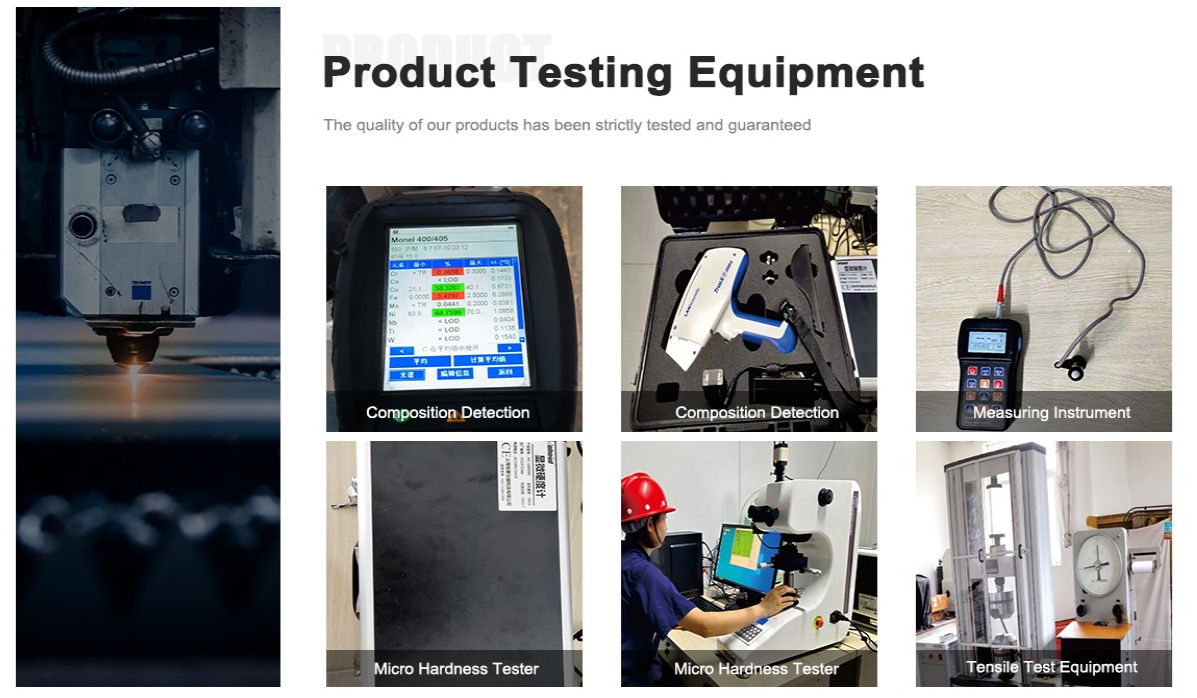
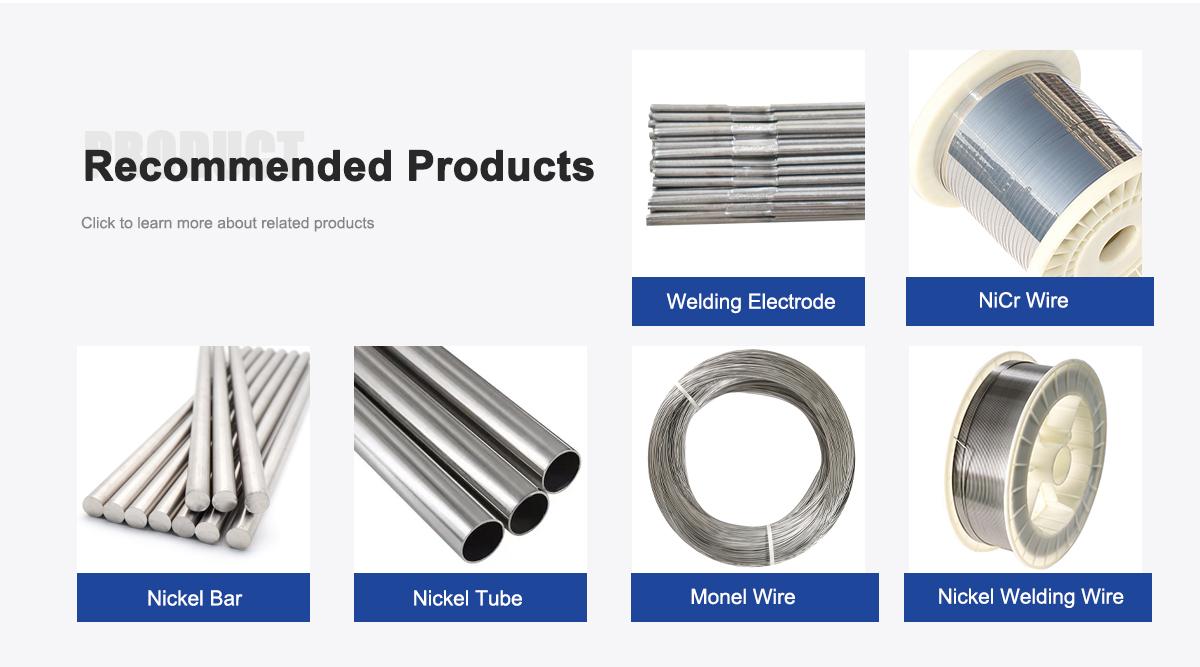
About Us:
Our 12,000㎡ factory is equipped with complete capabilities for research, production, testing, and packaging. We strictly adhere to ISO 9001 standards in our production processes, with an annual output of 1,200 tons. This ensures that we meet both quantity and quality demands. Furthermore, all products undergo rigorous simulated environment testing including high temperature, high pressure, and corrosion tests before being dispatched, ensuring they meet customer specifications. We also provide chemical analysis reports for every FeCrAl alloy, NiCr alloy, and other products purchased.
For all our clients, we offer timely and multilingual after-sales support and technical consulting, helping you resolve any issues swiftly and efficiently.
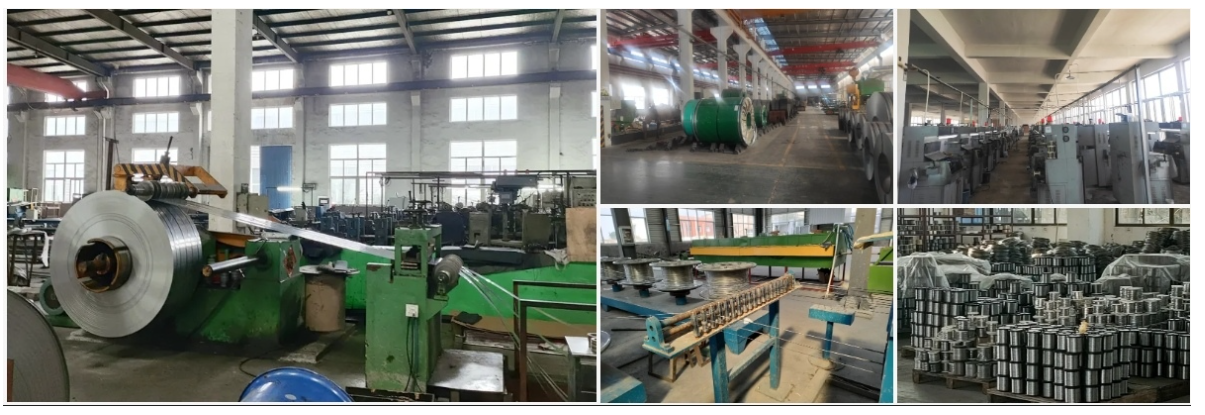
Client Visits
Building Stronger Partnerships
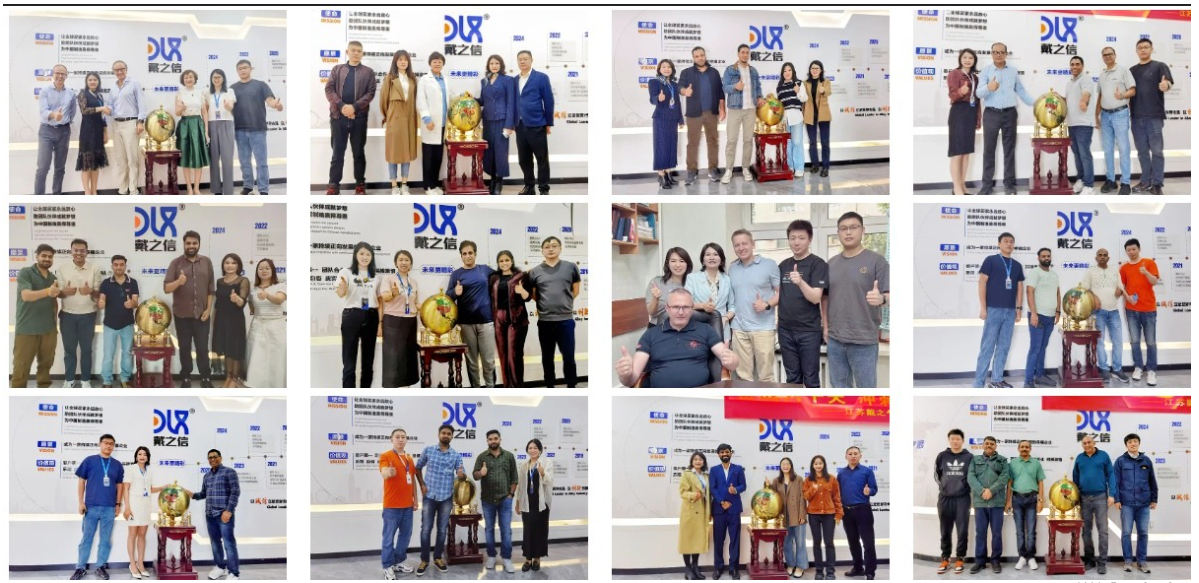
We support all kinds of testing:
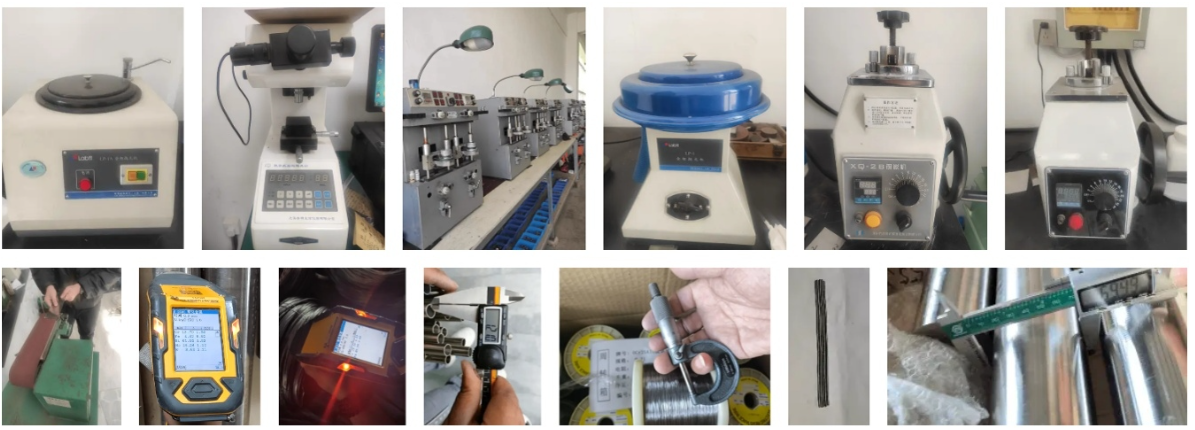
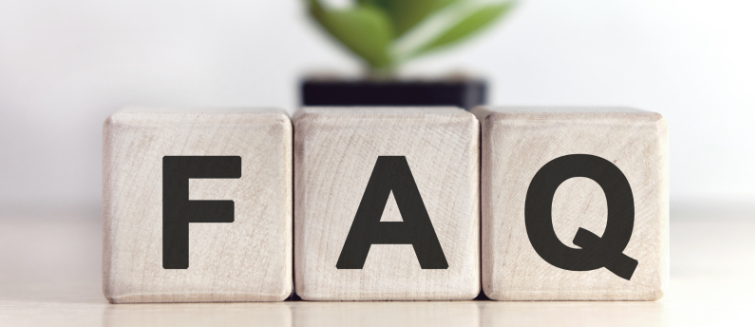
What makes ERCuAl-A1 ideal for chemical equipment?
Its high aluminum content ensures excellent corrosion resistance against harsh chemicals and fluids.
Can ERCuAl-A1 weld dissimilar metals?
Yes, it’s great for joining aluminum bronze to steel or other copper alloys with strong, reliable welds.
What industries use ERCuAl-A1 wire?
It’s used in chemical processing, mining, marine, and industrial manufacturing for durable welds.
How does ERCuAl-A1 compare to ERCuNi?
ERCuAl-A1 excels in wear resistance and surfacing, while ERCuNi is better for seawater corrosion resistance.
Is ERCuAl-A1 suitable for surfacing applications?
Absolutely, its hardness makes it ideal for overlaying worn parts like gears and valve seats.
What shielding gas works best with ERCuAl-A1?
Pure argon is recommended for TIG welding, with a flow rate of 15-20L/min for optimal performance.
Can ERCuAl-A1 be used in automated welding?
Yes, its consistent feed and stable arc make it perfect for robotic welding systems.
Why choose ERCuAl-A1 over ERCuSi-A?
ERCuAl-A1 offers superior wear resistance and strength for heavy-duty industrial applications.
Our ERCuAl-A1 aluminum bronze welding wire is a top pick for industrial and chemical equipment welding. Its strength, corrosion resistance, and versatility make it perfect for tough jobs, from chemical plant pipelines to heavy machinery repairs. With industry trends favoring durability and automation, our wire keeps you ahead of the curve. Choose us for quality, reliability, and welds that stand up to the harshest conditions.